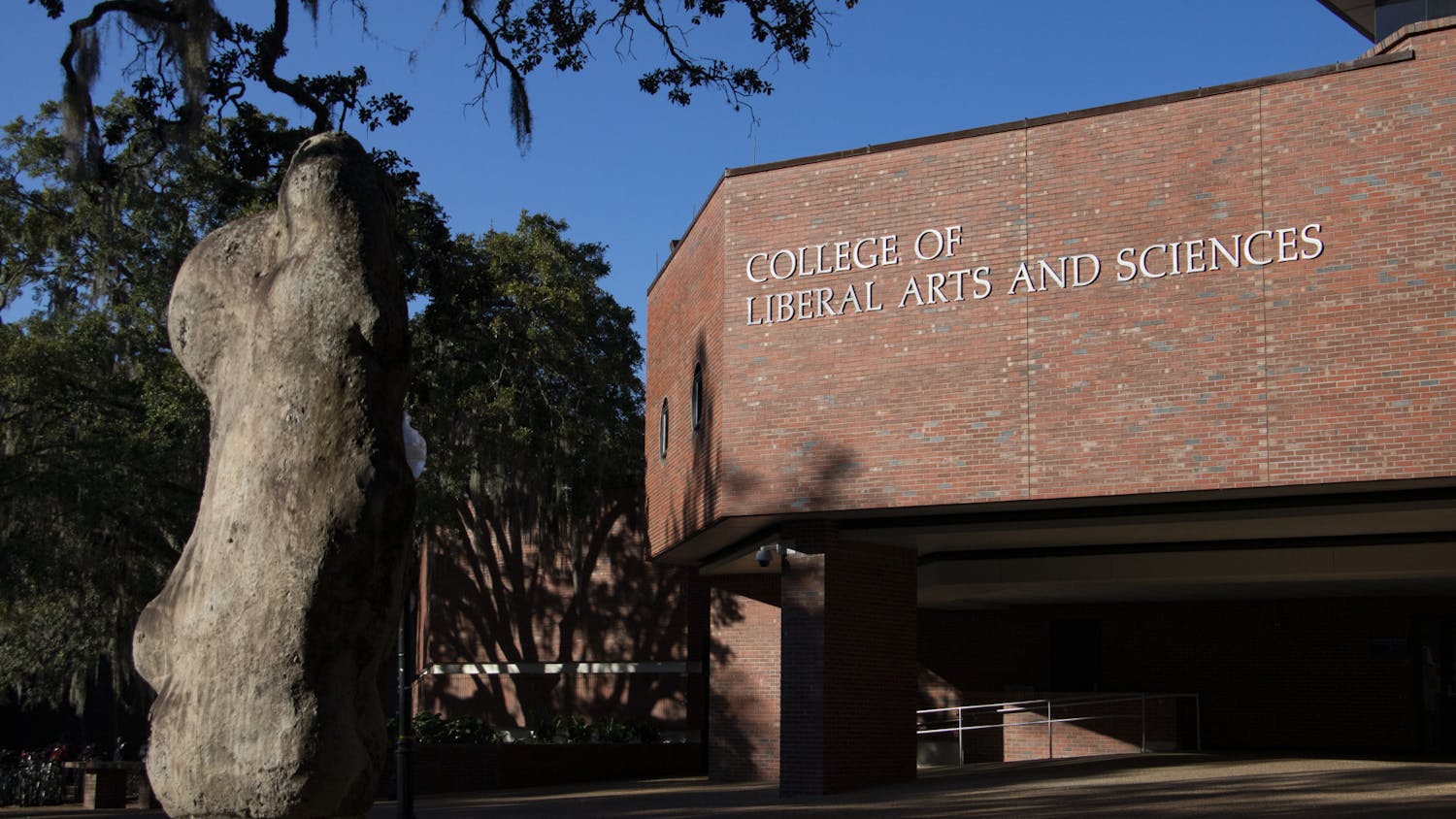How can a course called Chinese Religions or Haitian Culture and Society incorporate readings from the “Western canon”?
Florida university faculty have until July to figure it out.
A new Florida law requiring all humanities General Education core courses include “selections from the Western canon” will take effect Fall 2024. The requirement was added to Florida statutes in May as part of Senate Bill 266, the same sweeping education reform bill that cut state funding for diversity, equity and inclusion programs.
To ensure universities are enforcing new standards, the bill mandates faculty committees review Gen Ed courses and report them to the state for review every four years beginning July 1.
While UF’s diversity program cuts inspired national attention when announced last month, the Western canon requirement has just recently stirred quiet confusion among faculty responsible for its enforcement.
What is the Western canon?
The UF Gen Ed Committee has been tasked with defining the “Western canon” at the university level. At the committee’s March 1 meeting, it released a definition of the canon as “foundational works that shaped the development of Western civilization or played a significant role in shaping Western thought” — including texts, film and visual arts.
The committee is avoiding explicitly defining the “Western canon” due to the complexity of the term and its history, said member and UF assistant instructional professor Angela Bacsik.
“Our current practice is to ask faculty proposing courses to explain to the committee which ‘Western canon’ materials they plan to use in their course,” she wrote in an email to The Alligator, “so that we can help them meet the requirements."
Benjamin Hebblethwaite finds the requirement “madly hilarious” and is confident his Haitian Culture and Society class, which satisfies a Gen Ed requirement for both humanities and social and behavioral sciences, won’t be affected, he said.
“I think there are people on this campus, there are legislators, who view the ‘West’ in a sort of racially limited context,” the UF associate professor said. “But I’m curious, what would you propose [Haiti] to be if it’s not Western?”
One important text in Hebblethwaite’s class is the “Black Code,” a French legal document that governed enslaved people in the colonial world. Hebblethwaite considers the code “one hundred percent Western” despite not showing the West in the positive light he thinks politicians envisioned, he said.
Hebblewaithe has turned in his syllabus to department administration and will soon have to fill out a survey on his course’s contents, he said. Though he thinks he can convince administrators Haiti truly is the “heart of the West,” he worries for faculty in Asian studies, he said.
Losing Gen Ed status would decrease registration numbers for already-struggling humanities classes, Hebblewaithe said. Just three students enrolled in his Haitian Culture class this semester.
“We rely on Gen Ed designations to attract students,” he said. “So stripping that would be like canceling class.”
The West as a comparison
Yuan Zhang, a UF Ph.D. student in the Department of Religion, taught Chinese Religions in the Spring. The introductory class on main Chinese religions, including Buddhism and Confucianism, satisfies the humanities Gen Ed requirement.
To Zhang, “West” is an ambiguous term she avoids using because it makes her feel uncomfortable to do so, she said.
“The ‘West’ is a term only valid in comparison with the East, right?” Zhang said. “For example, South America, how they understand ‘East’ or how they understand ‘West’ is probably different from how, let’s say, Indian people understand, or Chinese people.”
Most students know nothing about Buddhism before her class, Zhang said. She references familiar European philosophers like Plato alongside Buddhist philosophies to help students understand concepts they already know — like free will — from different perspectives, she said.
Zhang adjusted her syllabus by adding a few details relevant to SB 266 with the support of her advisor. But she hasn’t thought about how the Western canon requirement may impact the class moving forward because she doesn’t plan to teach it again, she said.
Kenneth Sassaman, a UF anthropology professor who teaches the class Indigenous Values, doesn’t think legislators anticipated classes on Native American or ancient Egyptian cultures predate the Western canon by a millenia, he said.
“To reduce it down, to say, ‘Oh, every class needs to have the Western canon,’ it’s like saying to a doctor, ‘every patient needs to take an aspirin,’” he said.
Reading Western philosophy isn’t necessary to compare Western worldviews to Indigenous ones, Sassaman said. Students already know the Western way of thinking because they live it every day, he said.
“When we talk about healing in class, I ask the students, ‘If you get a cold, what do you do?’ Most of them that are willing to raise their hand, say, ‘Oh, well, I go to the doctor and I get a prescription,’” he said. “Do you have to read René Descartes to understand that concept? I don’t think so.”
UF’s ongoing emphasis on “classical” education
Though the canon requirement comes from the state, not the university, it mirrors UF’s own Western civilization momentum.
The university founded the Hamilton Center for Classical and Civic Education in 2022 and received $30 million in state appropriations for the center the following year. The center aims to educate students in “core texts and great debates of Western civilization and the Great Books.”
As universities cut liberal arts nationwide, UF’s investment in humanities faculty has created a “bit of buzz” in higher education, said Hamilton Center professor Jeffrey Collins. The political theory specialist is excited to be on the ground floor of a program reinforcing the value of the textual traditions he loves to teach, he said.
Collins is “all for” the Western canon emphasis and trusts UF to enforce the mandate constructively and inclusively, he said. He doesn’t teach “Western Civ” classes as “heritage history” valorizing Europeans, he said. Instead, he makes space for discussing both the achievements and shortcomings of Western texts in his classes.
In his office, Collins keeps several copies of Martin Luther King, Jr.'s syllabus from his time as a Morehouse College social philosophy professor in 1961. The Civil Rights leader taught Aristotle, Hobbes and Locke — the same readings Collins uses in his own classroom.
“Nobody was saying Martin Luther King was an uncritical celebrant of the product of Western civilization,” Collins said. “You obviously need to correct it and move beyond it to some extent … but he didn’t not teach it.”
King would be excited to see Western Civ as part of university curriculum today, Collins said.
But not every historian feels the Western canon belongs in all humanities classes. The American Historical Association sent a letter to the Florida Senate opposing SB 266 for depriving students of “the chance to become global leaders” in May.
The nonpartisan organization has closely tracked state bills dictating university education since they began popping up across the country in the last four years, said AHA Director of Teaching and Learning Brendan Gillis.
“You can listen to some politicians and get this idea that most university faculty don't want to teach these core historical moments and core texts, things like the Constitution,” he said. “That's simply not true. We do teach these texts, and the idea that a student at a major public university in Florida doesn't have the opportunity to learn about European art and culture or U.S. political history is absurd.”
Educators should be more concerned other ideas are also addressed, Gillis said — especially because employers value history graduates who understand the complexity and interconnectedness of the 21st century.
Among UF humanities Gen Ed courses focused on studying specific locations for Spring 2024, a little over one-third center European countries. The U.S. is the most studied country — the university is holding 21 America-centric classes, including two on Florida and one on Indigenous studies.
Students can choose from humanities Gen Ed classes on individual European countries including Greece, France and Italy, but none that mention individual African countries or Spanish-speaking countries by name. Instead, the six African courses and five Latin American courses study their respective regions as a whole.
Theresa Antes, a UF French and Linguistics associate professor, agrees most students already have background knowledge of foundational Western works from high school, she said.
As chair of her department’s curriculum committee, Antes is now reviewing the syllabi for general education faculty in her department. She didn’t learn of the Western canon requirement until a week ago, and says faculty haven’t discussed it at the departmental level.
Chairs and directors like herself are still waiting on the state legislature or university provost to clarify what the statute means by “selections,” Antes said. She’s not sure whether faculty will have to assign specific Western canon readings in their courses or whether they can just reference Western works in class discussions, she said.
“Are they wanting us to make sure that students have some knowledge of some of the most important works?” she said. “I think you have that already. I think you’ve got that in high school. You’ve got it in courses like LIT2000.”
Antes hopes the university can take a broad view of “Western canon” that includes former European colonies like Haiti. But until she receives clarification, she and other administrators can only guess as to how the “Western canon” will be defined — and who will get to define it.
Contact Zoey Thomas at zthomas@alligator.org. Follow her on X @zoeythomas39.
Zoey Thomas is a media production junior and The Alligator's Spring 2025 data editor. She previously reported for the metro, university and enterprise desks. In her free time, you can find her reading, crocheting or arguing for the superiority of sweet potatoes over regular potatoes.






